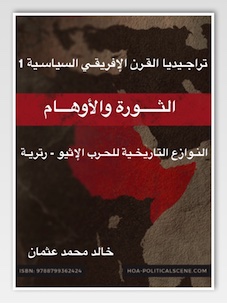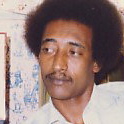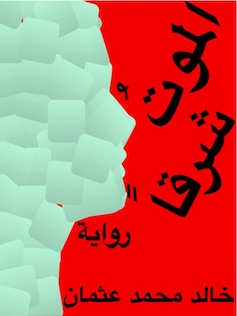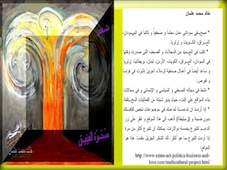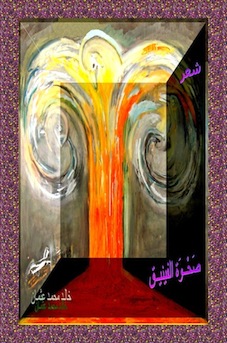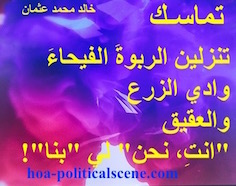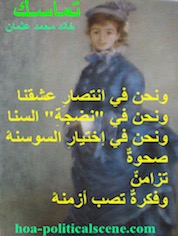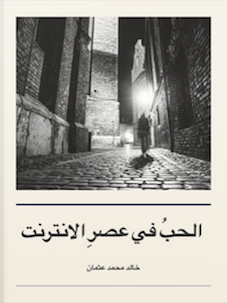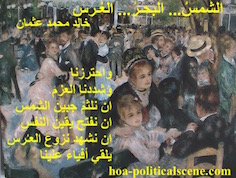Sudan's Memoir in Exile: A Sudanese Poetic Voice from the Diaspora!
Sudan's Memoir in Exile: A Sudanese Poetic Voice from the Diaspora is not simple textual content, it is a lyrical excavation of tragedy, woven with sorrow and suspended in memory. Through poetic rhythm, it reflects loss, enriches thought, and dares to open a window of hope... a hope to reclaim what was taken. This is more than a personal story. It is an invitation: to revisit your own memory, to reflect, and to see Sudan through a lens that stirs action. It calls you to move, to soothe a wounded nation, and to help bring it back from the margins of exile.
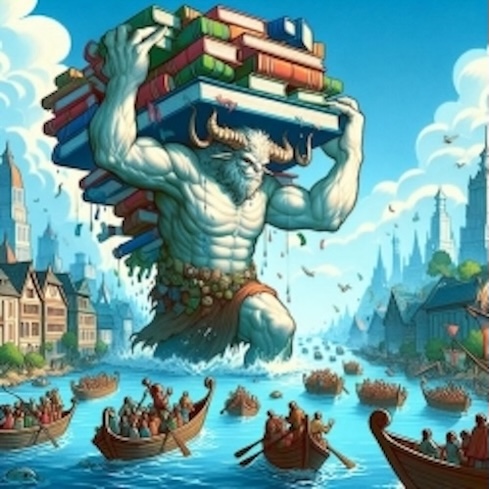 Sudan's Memoir in Exile: A Sudanese Poetic Voice from the Diaspora: No matter how that creature is gigantic, Sudanese if woken up will defeat it with its religious myths.
Sudan's Memoir in Exile: A Sudanese Poetic Voice from the Diaspora: No matter how that creature is gigantic, Sudanese if woken up will defeat it with its religious myths.Dedication: This is my life. Though every part of it says "you" instead of "I," I wrote it for you to become your voice. Enjoy it. Reflect from it.
I dedicate it also to the spirit of my dad, and your dad too, if he traveled to that world beyond the unseen!
Introduction: This Is My Life, for You
You are about to read my story.
But throughout these pages, you will see yourself.
Because I didn't write it saying "I" or "me." I chose "you."
I did so deliberately. Not for distance, but for closeness.
I wanted my memories to feel like yours.
I wanted you to walk my streets, sip my tea, whisper my secrets.
You'll encounter longing, laughter, rebellion, jasmine, and salt.
You'll travel through Sudan and exile, childhood and truth.
And though every line says "you," it means *me*. And now it means *us*.
This is my life.
But it's yours to live through.
Let it reflect you. Let it hold you. Let it guide you.
Boutiques, Bookshops & Broken Promises: A Child's View of Glamour & Grit in Sudan's Dictatorship Years!
In a city dusted with heat and hush, where silence was often the loudest sound under Abboud's dictatorship, there stood a beacon of defiance, not in slogans, but in elegance. A glass-fronted boutique, curated by your father, shimmering with Swiss watches, Parisian perfumes, and shoes that whispered of a world far beyond the Nile. Inspired by the luminous vitrines of Yves Saint Laurent and Pierre Cardin, his shop did more than sell, it dared to dream.
Beside it stood the first bookshop in the city, a place where paper held rebellion and imagination in equal measure. You, a trusted child with the key to the post were its unofficial envoy, unlocking Egyptian magazines and Reader's Digest editions as if welcoming ideas smuggled through ink and gloss. Some arrived bearing gifts: cinema star cards of Marilyn Monroe, Gregory Peck, and Gary Cooper, flickering tokens of a wider universe.
The boutique and bookshop weren't mere neighbors; they were dual sanctuaries of style and thought. Under the oppressive sun and rule, you and your friends gathered like moths around light, reading, collecting, dreaming, immersed in narratives of beauty, courage, and faraway conflict.
Films like "The Guns of Navarone", with Gregory Peck's steely gaze, fed your thirst for heroism. Hemingway's "The Snows of Kilimanjaro" offered the quieter torment of a man haunted by lost words. Somehow, both mirrored your world: a place of visible daring and invisible longing.
What you saw as a boy wasn't just glamour, it was grit. It was elegance wrapped around resistance, imported ideas flourishing beside local frustrations. Through childhood curiosity and cinematic gloss, you caught glimpses of freedom, personal, cultural, intellectual, even as the dictatorship tried to dim the lights.
And now, looking back, we see it clearly: Sudan's political shadows couldn't dim a child's radiant wonder. Your memories are the proof.
Between Letters and the Nile: A Sudanese Reflection on Friendship, Power, and Memory!
Where emotion and politics flow side by side like the riverbanks of the Sudanese Nile itself.
In those quiet years of dictatorship, words became messengers. In place of speeches and freedom, there were letters, delicate, hand-written bridges between worlds. Some came from Egypt, tucked inside magazines; others from friends, slipped into bookshop pages or delivered with trembling hands. Every envelope carried a kind of resistance, a pulse of connection that no regime could suppress.
You remember those letters not just for the ink, but for the intimacy. Friends wrote of dreams and defeats, of fleeting crushes and forbidden books. Sometimes, beneath government-approved stamps, they enclosed poetry or photographs, little contraband offerings of selfhood. In return, you wrote back with equal courage, even as walls around you grew taller and ears sharper.
Then there was the Sudanese Nile. Its waters watched everything: the boutique that dressed a city in European grace, the bookshop that hid contrarian thoughts between covers, and the children who played on its banks whispering of cinema stars and revolution. You weren’t just part of a generation, you were its witness.
Friendships in those years glowed bright but fragile. Some friends vanished into exile, others into silence. Some betrayed their ideals for safer lives. And yet, in your memory, their laughter remains vivid, echoing near the post box, beside the perfume counter, under the tree where you read your first copy of "Reader's Digest". That laughter, you now realize, was resistance too.
Letters from the Bookshop: Ink, Innocence, and Silent Resistance!
Behind a boutique's shimmering glass, a curated homage to Parisian elegance, stood another kind of treasure: the bookshop that gave shelter to young minds beneath a dictatorship's tightening grip. Between its shelves, tucked inside Egyptian magazines or behind slim novels, were letters. Not official dispatches or government pamphlets, but delicate pulses of humanity handwritten by friends, cousins, and dreamers.
You, were the messenger. With the key to the post and a smile of quiet authority, you fetched stories from Cairo, messages from faraway siblings, and hidden photocards of Marilyn Monroe and Gregory Peck. Each letter opened like a window: a glimpse into another life, another thought, another kind of hope.
Some letters mourned lost love. Others shared verses from Sudanese poets like Mohammed Osman Kejirai (later to be my colleague and friend in the Eritrean official newspaper Hadath Eritra and later the official magazine of Hidri, the voice of the PFDJ), banned but beloved. A few contained schoolyard gossip from Khartoum or sketches of imagined film scenes featuring stars in plots never written. And sometimes, a friend simply wrote: "Let’s not stop dreaming."
The bookshop was more than walls lined with paper, it was an underground library of lives unfolding. Children read in whispers. Teenagers copied poems they dared not recite aloud. And you stood among them, anchoring memories like a lighthouse keeper, your father's boutique reflecting light, your own heart collecting it.
The Scent of Rebellion: Fragrance, Fashion, and the Unspoken Politics of Your Father's Boutique!
🌿 At first glance, the boutique was a marvel, a glinting glass sanctuary where French perfumes whispered of Parisian boulevards, where shoes gleamed with modern curves, and Swiss watches ticked like the pulse of a freer world. But beneath its polished facade, your father's boutique was playing a quiet game with power.
🕶️ In a society shadowed by dictatorship, this boutique didn't just sell products, it sold defiance wrapped in style. The mirrored vitrines, inspired by Pierre Cardin and Yves Saint Laurent, weren't only about aesthetics; they were declarations of sophistication in a climate of repression. While politicians issued decrees, your father issued elegance.
👠 Each item, whether for children, women, or men spoke a language the regime couldn't regulate. A bottle of cologne wasn't merely fragrance; it was a promise that self-expression still mattered. That beauty could bloom under surveillance. And customers knew it. They came not just to shop, but to feel a little freer in front of the mirror.
📚 The boutique's location beside the bookshop wasn't accidental. it symbolized a unique cultural alliance: glamour and intellect. One wrapped people in style, the other in thought. Together, they carved a haven where Sudanese dreams weren't censored, just gently concealed in the folds of fabric and the pages of books.
💬 This chapter could explore how fashion served as silent protest. How your father curated more than outfits, he curated dignity. And how you, as a child wandering between perfume counters and literature shelves, absorbed it all: the textures of freedom stitched into suits and bound into volumes.
Cinematic Echoes and Childhood Dreams: Sudanese Adolescence under the Silver Screen's Spell!
📽️ In the dim glow of Sudan’s movie houses, or even in homes where film posters hung proudly, cinema was more than entertainment. It was aspiration. It was escape. For you and your friends, Gregory Peck wasn't just Atticus Finch or the leader in "The Guns of Navarone", he was the embodiment of justice, resolve, and gentility, traits rarely visible under Abboud's rule.
🏞️ Watching foreign films beneath a dictatorship created a quiet paradox: the screen offered worlds where men stood up to oppression, where women danced free, where laughter bloomed without fear. Meanwhile, outside, whispers replaced voices, and laughter was sometimes rationed like electricity. But inside the theater, or huddled around a borrowed projector, freedom flickered on celluloid.
🌠 You collected cards of Hollywood and football stars as if building a mosaic of dreams. Marilyn Monroe wasn't just a beauty icon, she symbolized allure, mystery, and the possibility of another life. Each cinematic character became a secret friend, each poster a promise. Friends debated plots, re-enacted scenes, and dreamed of cities where one could speak without consequence.
🎞️ Films like "Roman Holiday", "The Guns of Navarone", or even Soviet classics echoed differently in your world. You didn't just watch them, you absorbed them. Their drama became part of your emotional lexicon, shaping the language of resistance inside you. While newspapers printed propaganda, cinema offered something real. Some years later, one of your friends at the workers' club shouted loud while watching "Z" in Coliseum cinema "down, down Nimieri."
🎬 This chapter could capture not only the titles and the stars, but the effect: how cinema helped you define morality, masculinity, courage, and hope. How celluloid light pushed back against political darkness.
Footsteps on the Boulevard: Memory, Movement, and the Streets That Raised Me!
🚶🏽♂️ The boulevard was no ordinary road. It curved through your childhood like a vein through a living body, carrying laughter, whispered secrets, and the scent of rebellion masked in French cologne. Some parts were shaded by eucalyptus trees. Others bore the harsh stamp of military boots. But to you, they were pathways of memory.
🛍️ Walking from your father’s boutique to the bookshop meant crossing realms. One displayed Swiss watches; the other carried forbidden thoughts bound in leather spines. But in between, the streets themselves spoke: vendors peddling spices, shoeshine boys humming love songs, and elders debating Egypt's latest magazine cover over hibiscus tea.
🗣️ You knew every crack in the pavement. That chipped corner near the magazine post where friends gathered. That square where two lovers once passed letters behind a screen of oranges. The city was alive, not with freedom, but with resistance in disguise.
🎒 As a child, you wandered it with light steps and heavy thoughts. You carried cinema star cards, dreams of the Nile, fragments of football scores, and questions about Atticus Finch’s quiet strength. What did courage look like in real life? Could justice bloom under shadow?
🌙 Evenings turned those same streets into mirrors. The boutique's vitrines lit up like Paris; the bookshop glowed with lanterns and longing. And you, stood between them, absorbing both beauty and truth, stitching your identity with the thread of movement.
Tea, Typewriters, and Transcendence: The Invisible Libraries of Sudan's Salon Culture!
🫖 In the backrooms of homes and tucked-away courtyards, where Abboud's regime couldn't hear or see, Sudanese minds gathered. The tea was fragrant, steeped in tradition and secrets and the conversations richer than any textbook. These salons, informal yet sacred, became invisible libraries, curating wisdom across generations.
📇 Your father, perhaps polished from his boutique's elegance and sharpened by the pulse of the bookshop next door, would have joined these circles. There were civil servants, teachers, merchants, poets, each arriving with silence in their pockets and stories under their tongues. Typewriters clicked away as manifestos, letters, and translations of forbidden texts circulated discreetly. Every sentence typed was an act of faith.
🕯️ The walls were lined not with books, but memory. Someone would quote Naguib Mahfouz. Another would reference Jean-Paul Sartre. And amid sips of hibiscus tea, the young listened, rapt. You, likely stood at the edge once, absorbing the rhythm of dissent disguised as discussion. A salon wasn't a place, it was a temperature. Ideas simmered there.
📜 While state institutions floundered under censorship, these gatherings nurtured intellectual resilience. The typewriter became a torch. The spoken word, a shield. The aroma of tea lingered long after the voices quieted, as if brewing revolution slowly.
Veranda Republic: Tea Orders, Quiet Defiance, and the Gentlemen of the Arena!
🍵 Each evening, the veranda outside my father's boutique transformed into a parliament of laughter and layered loyalties. The arena stretched wide, bordered by the Singer shop, where sewing machines promised stitched futures and the tea shop, fragrant with roasted beans and whispered gossip. My father's circle was no ordinary gathering. They were the city's pulse: high-ranking officers, humble patrolmen, my own schoolteacher who doubled as a football hero on dusty fields. Their uniforms and titles meant little here. They were men first... friends, thinkers, quiet rebels.
📣 I had a role too. When the crowd thickened, I'd count heads with the precision of a young diplomat and shout my tea order to the shopkeeper across the street. "Seven teamilk! One with gomada on it!" I'd add myself to the tally, and the thick layer of cream"gomada" became my signature flourish. They'd laugh, not just at the order, but at the boy who knew how to serve ceremony with charm.
🛑 But beneath the laughter, history stirred. During the October Revolution 1964, when orders came to suppress student protests, these same policemen chose a different path. They came to our house instead, sat cross-legged over breakfast, refusing to raise batons against the voices of change. Their silence was louder than sirens. Their absence on the streets was a presence in the hearts of the people. To me, they were not just officers, they were guardians of conscience, symbols of a Sudan that could be tender and brave.
This final reflection on the police's role in Sudan's revolution closes "Sudan's Memoir in Exile: A Sudanese Poetic Voice from the Diaspora", but not the conversation. The rest of these salon fragments, typed, remembered, and steeped in tea will be published in full as part of a forthcoming book. These invisible libraries deserve their own spine.
More insights on Sudan and how it is still fracturing since the time of the independence, will help you resonate with poetic version in "Sudan's Memoir in Exile: A Sudanese Poetic Voice from the Diaspora".
What Do You Think of "Sudan's Memoir in Exile: A Sudanese Poetic Voice from the Diaspora"?
Let me hear your voice through your comment. That will help me work for you to write just amazing poetic pages to enjoy. If you liked this spirit, signup for Intelligentsia Newspaper and follow the Action Guide, so we can get closer and engage other nice fellows to get Sudan completely back.
Have A Great Story About This Topic?
Do you have a great story about this? Share it!
Personal Encounter with Fear
Did you get any of my books from Apple Books?
Click here to tell me & get some free books. Fill the form.
رواية "الموتُ شرقاً" تكشف لك سرّ الموت الشرقي التراجيدي المستمر للإنسان
احصل علي الرواية الآن واكتشف إنهيار القواسم المشتركة، واستلهم إبداعا يشبه الأسطورة في النص الروائي
"Follow", "like", "tweet", or "pin" the pictures to express your love! Thanks
TweetHorn Africa's Political Tragedy
Love in the Internet Time on Apple Books
Rising of the Phoenix Poetry on Apple Books
Free Poetry Picture Book
Free poetry picture book on Apple Books. You can use the images on public places for your customers to enjoy, while taking coffee.
The French & Spanish Versions
You can work the French versions and the Spanish versions of the two books above with me on, one on one bases. Contact Us.
HOAs Political Poetry Imaged
I'll be thankful, if you get one of my books.
My Books!
Publish Your BookLet's be the publishers of your book. Use the form at Contact Us.















